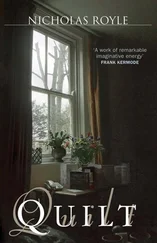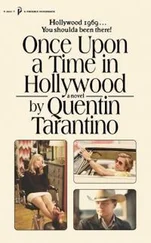‘. . things happen only in the present.’
Borges
IT WAS EITHER going to be all right or it wasn’t. In fact, no, it wasn’t. It was never going to be all right.
It wasn’t all right.
I woke up in hospital under police guard. Once the medical staff informed them that I was good to go, officers removed me to the police station where I was formally charged with the murder of my daughter Laura and the attempted murder of Jonathan, my son.
Some days passed.
I had been assigned a lawyer called Arnold, a tall, well-built Yorkshireman with a gruff, friendly manner. He had dark hair cut very short at the back and sides, just beginning to go grey at the temples, and rimless glasses with red plastic arms. He walked a difficult line between seriousness appropriate to the alleged crimes and off-the-cuff jokey remarks, including disrespectful references to certain police officers. I asked him at one point why no one had mentioned my attempted suicide.
‘If they ignore the attempted suicide angle, it should be easier for them to make the murder charges stick.’
‘Murder charge.’
‘Murder charge and attempted murder charge.’
‘But how can there be any doubt?’
‘We need to argue you didn’t know what you were doing. The emotional upheaval caused by the impending divorce and probable loss of your children upset the balance of your mind.’
‘Temporary insanity.’
‘It’s our best shot.’
It took a long time for the case to come to trial. Jonathan had made a full physical recovery. I had requested permission to see him, which had been denied. According to Arnold, we could have challenged that decision, but it would not have looked good. A great deal seemed to rest on what looked good and what didn’t.
‘It’s the way the law operates,’ Arnold said.
Arnold also reported some chat that Veronica was coping very badly and that it couldn’t be assumed that Jonathan would necessarily end up with his mother in the long term.
‘Where would he end up in that case?’
‘There are different options.’
‘None of them involving me.’
‘That would be unlikely, even given a good outcome.’ Arnold looked at me. ‘So how would you feel about Jonathan ending up in the system somewhere?’ he asked me.
It was a strange question, coming from him. He had not previously asked me about my feelings. I told him I didn’t have any.
He reminded me — he said he was reminding me — that when I had been informed of the charges against me, having been told nothing of what had happened prior to my arrest when I had regained consciousness in hospital, I had broken down and the investigating officer had suspended the interview. I was locked in my cell and a suicide watch was maintained. On the third day, by which time I was quiet and withdrawn, they made the decision to continue questioning me.
‘Did you know what you were doing when you attached the hosepipe to the exhaust of the car?’ Detective Inspector Huxtable asked me.
‘You don’t have to answer that,’ Arnold advised me.
‘Either I did or I didn’t,’ I said.
‘Do you feel any remorse over your actions and their consequences?’ asked Huxtable, rubbing at the bags under his eyes with nicotine-stained fingers.
‘My client chooses not to answer that,’ said Arnold.
‘Either I do or I don’t,’ I said.
Arnold requested a temporary halt to the interview and we ended up back in my cell.
‘I strongly advise you to answer “No comment” to all further questions,’ he said.
I tried to follow his advice, but the fact was I didn’t care enough about the outcome.
The case eventually went to trial and despite Arnold’s best efforts I was convicted and handed a life sentence for murder and a further five years for attempted murder, but given the nature of the case the two sentences could be served concurrently and the amount of time I had spent on remand would be credited to my account, as it were.
In 1993, I began my sentence, in prison rather than hospital, the temporary insanity argument having failed to impress the judge.
Arnold had asked me if I wanted to go on Rule 43 to protect me from other inmates. In prison, if you’re a certain class of offender, they stab you with a knife in the showers first and ask questions later. I refused, saying either I’d be attacked or I wouldn’t. But one morning in my second week I was standing on the upper landing in a line of men waiting to slop out, when I realised the man standing next to me had received a sharp nudge in the back once he had drawn level with the stairs. I watched him tumble down two flights of metal stairs, hitting his head several times on the way. Word had got out that he was in for the rape of a minor. I decided to try to take control of my own destiny.
People didn’t tend to ask you straight to your face what you had done. They were more likely to ask someone else. My cellmate, Joel, who was known to be reliable in one way only, as a gossip, had told me what had led him inside: he had thrown a punch at a debt collector’s chin and while Joel, who had apparently always been as thin as a reed, even before becoming addicted to smack, had dealt him a feeble blow it had caused the debt collector to take a step back, lose his footing and hit the side of his head on the sharp edge of a brick wall. Blood everywhere. So Joel told it.
One night, I waited for Joel to fall asleep and then threw a pen at the stainless-steel toilet bowl in the corner. The noise woke him up. Disorientated and flustered, he asked what was going on. I said I didn’t know. Nothing. But that I was lying there thinking about what I’d done to end up in a jail cell with a man who’d murdered a debt collector by doing little more than breathe on him.
‘No offence,’ I said.
‘None taken.’
I lay there in silence waiting for him to pick up the baton.
‘So, what did you do?’
‘I killed a man,’ I said. ‘I suppose you could say it was in cold blood, or you could argue it was a crime of passion, as my lawyer did, not very successfully.’
‘Why did you kill him?’ Joel’s voice, with its strangulated Glaswegian accent, sounded vulnerable and needy in the dark.
‘His name was Trevor.’
‘Reason enough,’ Joel cut in.
I grunted. ‘He was an airline pilot who’d been sacked for being drunk on the job. Anyway, I found out my wife was having an affair with him. She tried to end it. She took my two daughters up to see him to end it, thinking that if he saw she’d got two little girls with her—’
‘Twins?’
‘What?’
‘Are they twins?’
I hesitated. ‘Yes,’ I said. ‘They were twins. She thought if she turned up with the twins and told him it was over he’d just accept it. He wouldn’t make a fuss.’
‘What do you mean “were twins”?’
‘I’m coming to that.’
‘Sorry, pal.’
‘So, anyway, he made them go up in his four-seater plane. He was allowed to fly small planes. The plane crashed and they all died.’
‘Except Trevor, right?’
‘Yes, except Trevor.’
‘So you killed the cunt.’
‘I tracked him down and I killed him with my bare hands. I throttled him. Strangled him. Somehow I even managed to break his neck.’
‘Fair play. The cunt deserved it.’
After the visit to the hill where his wife and children died, I don’t see Lewis for a couple of weeks. The Residential is looming and I have to make certain preparations for it. The days will be structured, the mornings around exercise-based workshops, while the afternoons will be given over to one-to-one tutorials. During the evenings there will be readings.
Читать дальше












